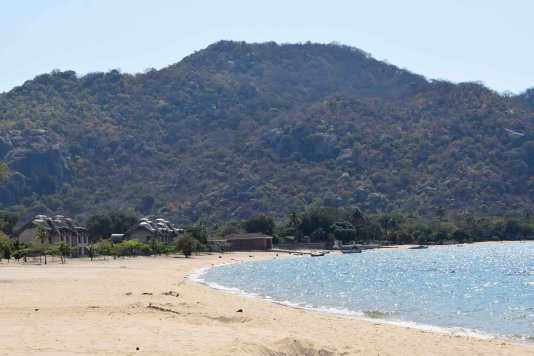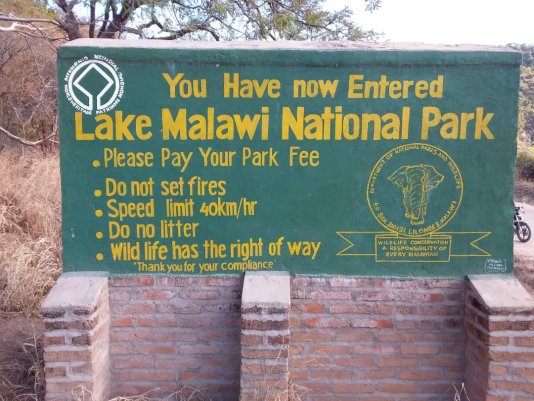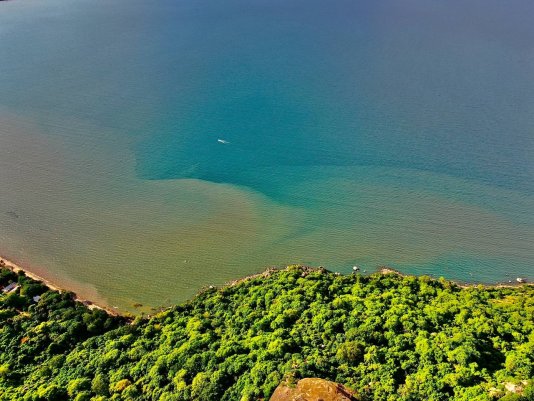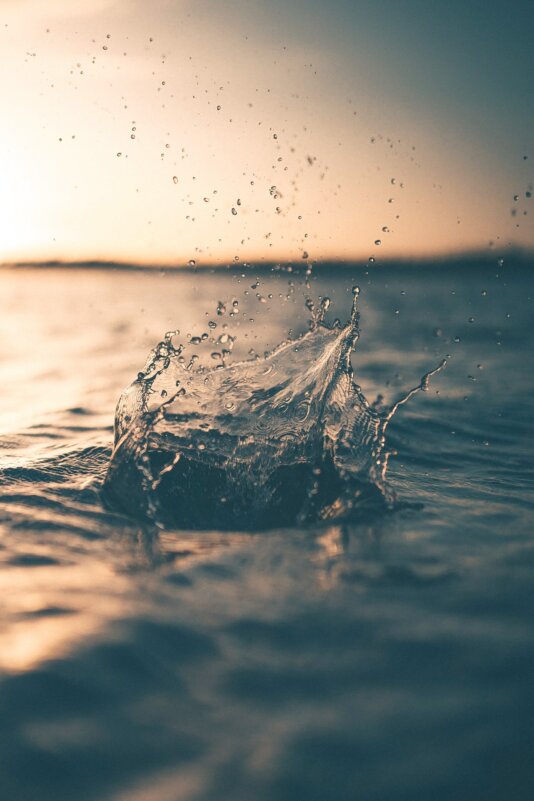- About
- Topics
- Story
- In-Depth
- Picks
- Opinion
- News
- Donate
- Signup for our newsletterOur Editors' Best Picks.Send
Read, Debate: Engage.
| February 21, 2023 | |
|---|---|
| topic: | Conservation |
| tags: | #Malawi, #biodiversity, #UNESCO World Heritage Sites, #water, #fish |
| located: | Malawi |
| by: | Charles Mpaka |
Conservationists in Malawi are protesting against a water project inside Lake Malawi National Park, a UNESCO World Heritage Site.
They are demanding that the project be immediately suspended and that its financiers, the European Investment Bank (EIB) and Kuwaiti Government, withdraw their funding from the project for breach of environmental protection safeguards.
"We are trying to get the project paused and have experts brought in to examine this failed project and ultimately have it put in an alternate site," Ken McKaye, one of the conservationists, told FairPlanet.
Declared a protected area in 1980 and a UNESCO World Heritage Site in 1984, Lake Malawi National Park is described by the United Nations body as "property of global importance for biodiversity conservation," largely due to its rich fish species.
Lake Malawi has 30 percent of the world’s cichlids species, with five of its over 350 fish species endemic to this water body and represented in the park. UNESCO equates the park’s cichlids as valuable to science as are the honeycreepers of Hawaii or the finches of the Galapagos Islands.
It further describes Lake Malawi as property of exceptional natural beauty for its islands, clear waters, rocky shorelines, sandy beaches, wooded hillsides, swamps, lagoons and rich biodiversity.
It is in this park that the project is located.
In June 2022, following a feisty resistance by conservationists, the government of Malawi resumed construction work for the project, which is intended to supply water to 93,000 people in the lakeshore district of Mangochi.
Protests started in 2021, when it emerged that construction had started before the government had made available an Environmental and Social Impact Assessment (ESIA) report for scrutiny. Activists subsequently obtained a court order that stopped the project.
When the government produced the ESIA report, conservationists trashed it for being inadequate on environmental protection, forcing it to rework it.
But even the redone version was found unsatisfactory. Conservationists said it varnished the scale of devastation the project would cause to the environment and the archeological artifacts in the park, and claimed that it ignored their demand to relocate the project to a site outside the national park.
Eight months since construction resumed, conservationists find that the contractors are not complying with the environmental protection measures for the project.
In the six months since the start of the project leading to the start of the annual rainy season in December, the contractors had not yet paved the access road and completed the storm drains as required in the contract documents. This has resulted in erosion and sediments draining into and polluting the lake shore.
In circulation are pictures of knee-deep mud sludge from construction sites coursing through the access road and seeping into the lake, colouring its blue waters.
The contractors have also not yet removed excavated and blasted rocks and debris and have not stabilised excavated terrain formations to prevent further pollution of the lake.
Conservationists describe the situation as an "environmental catastrophe in UNESCO World Heritage."
In a January 2023 letter to Southern Region Water Board - the government agency implementing the project, Steven Fry, one of the protestors, stated that pollution in the national park could have been avoided had the government heeded earlier calls to locate the infrastructure at equally viable sites outside the protected area.
"Not only would these sites have greatly reduced the risk of erosion, pollution and landslides, but would have also provided for a sustainable, cost efficient system," Fry said.
In another protest letter dated 18 January, 2023, conservationist Ken McKaye accused the EIB and the Kuwaiti government of being "ultimately responsible for this catastrophe."
"I wish to understand how the Kuwait Government and EIB will rectify the disaster they initiated, rehabilitate the environment and stop this failed and doomed project before more damage is done to this unique UNESCO World Heritage site," he noted in the letter to the two institutions.
McKaye said that the project should never have been funded in its current location, and added that it has been non-compliant with rules and regulations of EIB and even those of the Malawi government.
"Funding of this poorly considered loan should be withdrawn and not burden future Malawian generations with this debt," he wrote.
In a response to Fry's letter, the Southern Region Water Board acknowledged the problem of increased water flows and erosion, attributing it to delays in completion of drainage works ahead of the rainy season.
But the board added in mitigation that it has planted vetiver grass in bare sides of the road, provided silt traps and placed quarry on water ways to prevent erosion.
"The situation has improved greatly as I write," reads the 13 January, 2023 letter from the Chief Executive Officer of the organisation, Duncan Chimbamba.
This position is backed by another government agency, the Malawi Environmental Protection Authority (MEPA).
In response to FairPlanet’s questions about conservationists' concerns, MEPA said that so far the water board and its contractors are complying with the ESIA approval conditions and that the agency is satisfied with their efforts to manage the issues.
"The pictures of siltation being circulated are not necessarily an indication of the project’s failure to meet the necessary safeguards," MEPA’s acting Deputy Director General, Michael Makonombera, told FairPlanet. "The truth of the matter is that during the second week of December 2022, Mangochi received extremely heavy rainfall within two days that generated a lot of storm water within the project area, and specifically caused erosion along the unlined drainage channels of the access road. What happened was beyond their control."
He added the contractors have so far planted 9 tonnes of vetiver and 6,000 tree seedlings to control erosion.
However, Ken McKaye argues that planting vetiver, a shallow roots species along an already eroding dirt road, in the middle of the rainy season, cannot prevent erosion.
"If vetiver grass had to be used, it should have been planted and watered six months before the rains began, so the roots could take hold and spread," he said, adding that the silt traps the contractors have provided are "totally inadequate and a failure."
Worse still, vetiver grass is an exotic species that can spread dramatically in a protected area and should never have been introduced into a UNESCO World Heritage site.
He said that if this project is not stopped immediately, erosion and pollution of the lake will seriously negatively impact fisheries and inhabitants of the entire Eastern arm of Lake Malawi.
He therefore urges the EIB, UNESCO, IUCN and the Kuwait Government to call for an immediate halt to this project.
"They should withdraw funding until such time when an independent committee of internationally-recognised experts in hydrology, engineering, environmental reclamation and cichlid biology study in detail the entire project," he said.
McKaye told FairPlanet that EIB president assured them that the institution is looking into the matter. They are still waiting for a response from IUCN and UNESCO.
Image by Charles Mpaka.
By copying the embed code below, you agree to adhere to our republishing guidelines.



